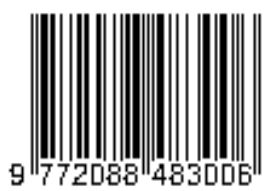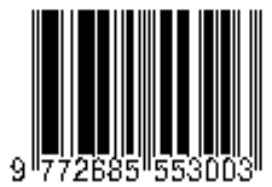Tipologi Wisatawan Millenial Dalam Implementasi Digital Nomad Di Kawasan Wisata Canggu
Abstract
The study focuses on the typology of tourists, specifically digital nomad tourists, following the surge in tourist activity in late 2018 when Nomad List recognized Canggu as the world's favorite destination for digital nomads, scoring the highest Nomad Score of 5. Digital nomads engage in a form of tourism called "traveling and living play and plug," allowing them to build a new workspace while traveling and quickly assimilate into local communities. Digital nomadism is a lifestyle that enables individuals to work online from various locations worldwide, unbound by a physical office or specific location. This research aims to analyze the types of online work undertaken by digital nomad tourists, their sources of income, and the success rate in finding online projects. Additionally, it seeks to identify travel patterns, including the duration of stays, frequency of movement, travel destinations, and accommodation preferences used by these tourists. The research methodology employed a qualitative approach, incorporating observational studies and literature reviews, as well as interviews. Through observations and interviews conducted in the Batu Bolong area, the study found that the most dominant type of digital nomad tourist is the "drifter" type. Drifters easily adapt to local communities and create flexible itineraries. In conclusion, this study provides insights into the typology of millennial tourists embracing the digital nomad lifestyle, emphasizing the dominance of the Drifter type.
References
[2] Iman Pribadi, T., Suganda, D., & Saefullah, K. (2021). PARIWISATA BERBASIS MASYARAKAT DAN DAMPAKNYA TERHADAP SOSIAL, EKONOMI, DAN LINGKUNGAN: TINJAUAN PUSTAKA. Jurnal Sosial Dan Sains, 1(2), 1–8.
[3] Pencarelli, T. (2020). The digital revolution in the travel and tourism industry. Information Technology and Tourism, 22(3), 455–476. https://doi.org/10.1007/s40558-019-00160-3
[4] Planoearth, J., & Ummat, P. F. (2018). Kontribusi Sektor Pariwisata Terhadap Ekonomi Wilayah di Provinsi Jawa Timur. In Agustus (Vol. 3, Issue 2).
[5] Pohan, H. A. (2019). Kepemimpinan Di Era Milenial Ditinjau dari Aspek Komunikasi. Jurnal Komunikasi Islam Dan Kehumasan (JKPI), 3(2), 156–174. https://www.hipwee.com/list/6-karakter-kepemimpinan-di-era-milenial/
[6] Rather, R. A., Hollebeek, L. D., & Islam, J. U. (2019). Tourism-based customer engagement: the construct, antecedents, and consequences. Service Industries Journal, 39(7–8), 519–540. https://doi.org/10.1080/02642069.2019.1570154
[7] Talwar, S., Dhir, A., Kaur, P., & Mäntymäki, M. (2020). Why do people purchase from online travel agencies (OTAs)? A consumption values https://doi.org/10.1016/j.ijhm.2020.102534
[8] Rasoolimanesh, S. M., Ramakrishna, S., Hall, C. M., Esfandiar, K., & Seyfi, S. (2020). A systematic scoping review of sustainable tourism indicators in relation to the sustainable development goals. Journal of Sustainable Tourism. https://doi.org/10.1080/09669582.2020.1775621










